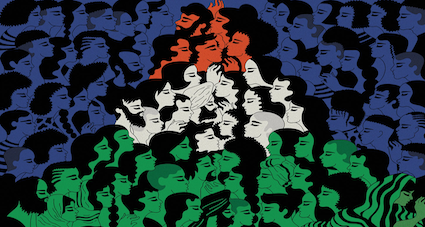(Dr Koenraad Elst is a voice we have ignored for long to our own detriment. Here Bhumika Arora transcribes his views on forces which are bent upon bringing India to a grief and how we could counter them).
Q: do you think India will survive itself as one nation despite the everyday increase of division among the people regarding caste, class, politics and religion?
Koenraad Elst: you see there are Breaking India forces at work. They do want to break up India.Not in terms of separatism perhaps, say by China, Pakistan or US as such but their interest is to keep India weak, not necessarily by dividing it.
Other forces are probably even more ambitious. You have all these NGOs, all these nongovernmental organizations often Christian or motivated by so-called Human Rights and so they are very much working against India and trying to divide India. Trying for independent Dravidian town in South and getting Kashmir out of India, some of the northeastern states and so on.
As for Islam, well, it did succeed in acquiring a part of the subcontinent. But they’ve learned that it’s not a best strategy looking backwards. For it ended up dividing Muslims. The best part of India have gone to the Indian Republic, they have the leftovers and then India is administered really well. I don’t want to make publicity for the Babus but nevertheless you see there is freedom, there is lot of private initiatives.
Socialism, well, India was for a long time proverbial synonym with poverty like the time of Mother Teresa you know. But that’s no longer the case. There was land reform, social reform, access to land, property, education and so on. Pakistan, on the other hand, is still a feudal, medieval state. So India is a pretty progressive country, in the good sense of the word.
NGOs are pushing Human Rights in the areas where they could put Hindus in the dock. Like you see these cases of rapes which have been enormously promoted, given enormous front-page coverage and so now that’s part of India’s image. And wrongly so I mean what rape cases have taken place in Pakistan. I mean in Belgium, or Australia or China. It also becomes front page in the West. They promote it in such a way that it becomes an attack on Hinduism and native culture. And then it takes a life of its own.
How to counter it? Well, you have to just oppose it, resist it. Whenever you see that kind of attack on Hinduism or Hindu culture or native culture, in newspapers and TV programmes, you react. Then this is also something which the government could do. Namely, to nominate, for example, the right people in position of responsibility in charge of news programmes—to counter the systematic Breaking India campaign.
I find the BJP government doing very little, understanding very little of what it’s all about, probably because of an inferiority complex like they borrow many concepts from the secularists.
Like I have this idea that Hindus are naturally overbearing majority that has to be kept in check like a dangerous dog in a cage. Many people who are nominally Hindu or on Hindutva have theorized this assumptions and that’s why they are slow in countering it.
So inferiority complex is one thing. The other is simply they don’t care. Now many people have joined BJP, they have no ideological interest in it and all they want is to be on the winning side. And they get positions of responsibility which I find irresponsible. They give positions. Of responsibility to just interlopers. These people are ideologically disinterested.
Then you have people who have other interests. Like many people want economic reform and so they don’t have their eye to security concerns to cultural concerns and so on. That too is part of the problem. What you need is to make them more conscious, more aware of its importance.
There is no magic formula. Here I am reminded of what (Hindu ideologue) Ram Swarup said, namely, that to light a candle you could use another burning candle. And so from candle to candle, you pass on the light. So in that sense you just have to work everywhere where you are, where you encounter fellow human beings and spread consciousness. That’s very important because if people don’t know what they are doing, they are not going to do much or achieve much.


